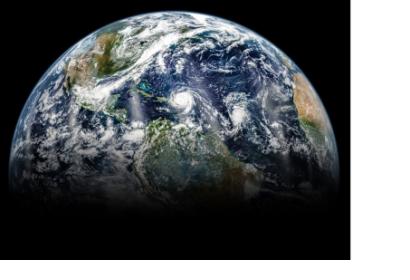Space-based information has been used extensively to contribute to disaster response efforts since several decades ago. To enhance the use of such space-based information, since the year 2001, national space agencies from many countries have joined forces over the years to integrate the International Charter Space and Major Disasters as a mechanism to provide space-based information free of charge to national disaster management agencies and first responders in case of devastating disasters in all regions of the world. Since it was established, the International Charter has been activated 825 times. More information on the International Charter can be found here.
On 01 July 2003, UNOOSA and the Executive Secretariat of the International Charter formalised their agreement regarding the incorporation of UNOOSA as a Cooperating Body to the Charter. As part of the agreement, UNOOSA would:
- Act as a gateway for submitting requests for assistance from UN agencies.
- Actively promote the Charter through its outreach programme and appropriate means through the UN system.
Since then, UNOOSA has elevated requests for activation of the Charter 105 times (nearly 13 percent of all activations of the Charter).
For example, UNOOSA and its UN-SPIDER programme have elevated requests for activation of the International Charter on 11 occasions in the case of Philippines, and on five occasions in the case of Indonesia, Namibia, and Pakistan. 56 countries have been supported through these activations. In most cases, the requests have been elevated to support disaster response efforts due to floods. In some cases requests have been elevated due to earthquakes, landslides, and volcanic activity.
Most of these activations have been elevated to support disaster response efforts in Asia and Africa, and in Latin America, the Caribbean and Oceania to a lesser degree.
In addition, UNOOSA raised awareness about the Charter in many international events in Europe, Africa, Asia, and the Caribbean; in many cases inviting representatives of the International Charter to make explicit presentations on its efforts to contribute to disaster response in case of large disasters taking place in any country of the world.
With the introduction of the Universal Access Policy by the Charter in 2014, UNOOSA, through its UN-SPIDER programme, has lobbied national disaster management agencies in Africa, Asia, Latin America, and the Caribbean to become Authorized Users of the Charter. As a result, twenty-three agencies have elevated such requests and were subsequently incorporated as Authorised Users between 2015 and 2023. Table 1 presents the list of the countries that have been incorporated since 2015.
|
Table 1: Countries incorporated as Authorised Users by UNOOSA and its UN-SPIDER programme (Source: UN-SPIDER and International Charter) |
|
|
Year of incorporation |
Countries |
|
2022 |
Honduras, Nicaragua, Niger, Panama, Solomon Islands, and South Africa |
|
2021 |
Armenia, Cameroon, Gambia, Mexico, and Mongolia |
|
2020 |
Costa Rica, the Cayman Islands, Ethiopia, and Tanzania |
|
2019 |
Ghana |
|
2018 |
Myanmar and Sri Lanka |
|
2016 |
El Salvador, Guatemala, and Uruguay |
|
2015 |
Colombia and the Dominican Republic |
Furthermore, the Charter, UNOOSA and other partners have implemented joint workshops to train many experts from government agencies, academia, and NGOs to become Project Managers or Value-Added Providers. Several of them have been selected to serve as project managers in case of activations in developing countries.
Together, UNOOSA, UN-SPIDER and the International Charter will continue to promote the use of space-based information to contribute to confront the challenges posed by natural and anthropogenic hazards worldwide.

